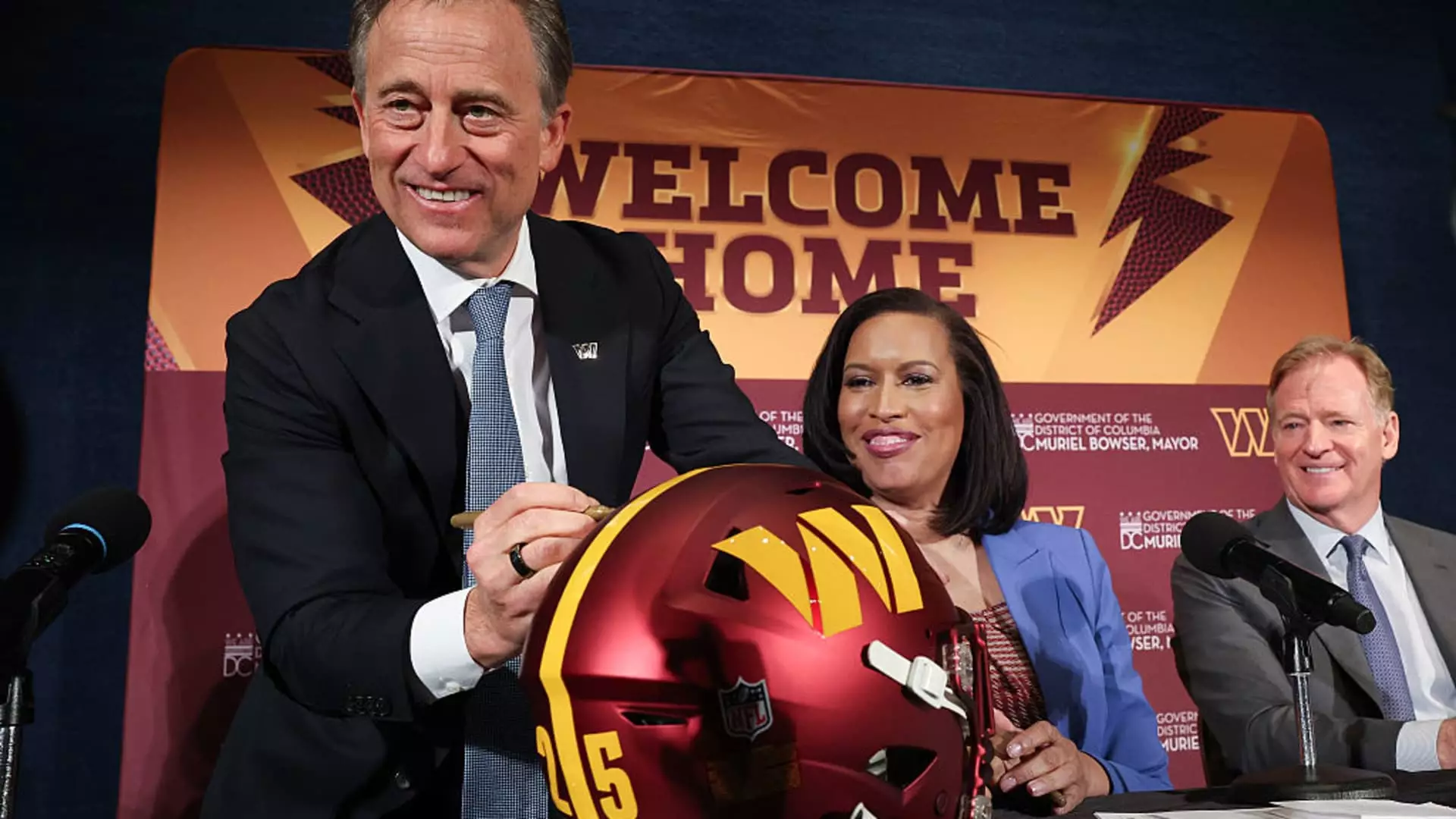The Washington Commanders are scripting a new chapter in their storied history by announcing their move back to Washington, D.C., a bold relocation worthy of both excitement and scrutiny. With this decision, the team is returning to a venue steeped in nostalgia—Robert F. Kennedy Memorial Stadium, a site that once echoed with the roars of victorious fans. This relocation marks not just a geographical shift but a significant cultural statement about the impact of professional sports on urban identity. The decision to plow $2.7 billion into a new stadium juxtaposed against a $500 million contribution from the city government raises vital questions about public investment in sports facilities and the socio-economic priorities of our cities.
A Pricey Proposition
While the total investment hovers around an astronomical $3.7 billion, one must ponder whether this monumental expenditure aligns with the pressing social needs of Washington residents. On one hand, promises of 2,000 permanent jobs and $4 billion in projected tax revenue sound enticing. But if we look beyond the figures, we should ask ourselves: Will these jobs go to local residents, or will they simply occupy positions that could have existed regardless of the stadium? Furthermore, can we genuinely expect the promised economic windfall, or will it evaporate into the ether, as so often happens with grandiose stadium projects?
Infrastructure Over Sports?
The city has touted infrastructure upgrades, including improved transportation and utilities, in conjunction with the new stadium. While these enhancements are essential for a thriving, modern urban environment, one wonders if prioritizing sports facilities over more immediate needs—such as affordable housing and public education—represents a sound policy approach. As fans celebrate the return of the Commanders, it is crucial for local leaders to maintain a balanced perspective, ensuring that the needs of the community are addressed rather than overshadowed by the glitz of a new sporting venue.
Nostalgia vs. Reality
The excitement articulated by Commanders managing partner Josh Harris and Mayor Muriel Bowser should not overshadow the reality that large-scale sports investments often come with an asterisk. While it’s clear that RFK Stadium holds a ‘legendary place’ in the heart of many fans, nostalgia risks morphing into a barrier against confronting contemporary issues. The community deserves to harness its history while also forging ahead, not simply recreating the past.
A robust sports culture can fortify a city’s identity, but such development must be part of a holistic plan that prioritizes the welfare of the broader community, not just the few. The challenge remains: Can the revitalization of RFK Stadium transcend mere sports and evolve into a venue for civic pride that champions social equity, or will it merely serve as a façade for deeper underlying systemic inequities? Only time will reveal the true impact of this ambitious venture.

